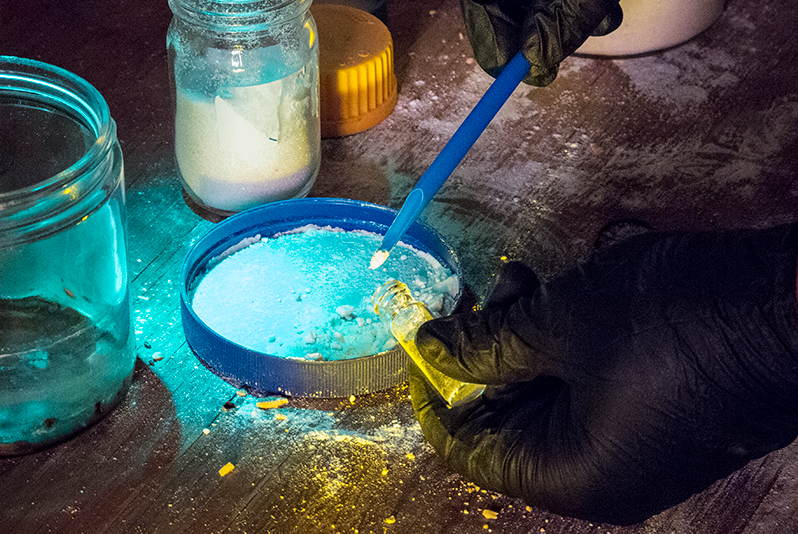Forensics Lab
Forensic experts use scientific tests and techniques to solve crimes around the world.
Placed in a virtual scenario, explore all aspects within the crime scene of one finite room. Find all forensic puzzle pieces, analyzing each with interdisciplinary methods to see how they fit together. Unlock the mystery and escape the room!

Reserve This Program
Fill out our form to begin your reservation. Lab experiences last 45 minutes. Each session accommodates up to 30 individuals. Experiences are primarily offered during core hours of 10 a.m. to 3 p.m. Requests for alternate days or times will be considered.
Virtual
- Offered Monday–Friday
- Requires a strong internet connection
- $250 for first virtual lab; 10% each additional virtual lab of the same theme on the same day
In-Person
- Primarily offered on Tuesdays, Wednesdays and Thursdays
- Hosted at your site; requires a classroom, library or other quiet setting
- $300 for first in-person lab; 10% off each additional lab of the same theme on the same day
Requests for alternate days or times will be considered. Within 48 hours after you submit your request, an Education Outreach team member will contact you to discuss your proposed itinerary. Once everything is reviewed and set, the invoice will be sent.
Alignments
Check out how our program aligns to Florida Department of Education and Scout benchmarks:
More to Explore
Want to get more from your adventures?
Combine labs, demos and field trips to reinforce learning and fun.
- DNA Detectives – Explore the mysteries that can be solved with the power of genetics through this lab which examines different methods to extract and analyze DNA.
- Code Breakers – Biologists aren’t the only ones piecing together unique puzzles to solve mysteries. Learn how people throughout history have encoded and decoded messages of all kinds.